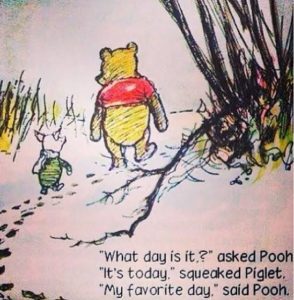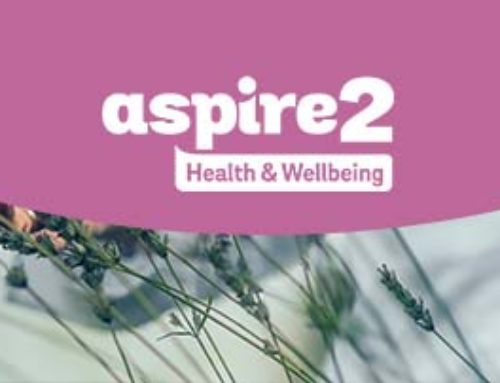
IN PURSUIT OF HAPPINESS – TAPPING INTO YOUR INNER WISDOM
There are more than 7.5 billion people on the planet today and not one of us is the same. We each have different personalities and capabilities, hold different beliefs and values, and live completely different lifestyles. Some worship different gods (or none at all), have different political views, and embrace different cultures. We come from peaceful countries and war torn ones, we are young and old, rich and poor. But despite our almost limitless differences and idiosyncrasies, there is one thing that every single person on this planet shares – the desire to be happy.
The pursuit of happiness has existed since man first walked the earth (and probably long before that too). But how do we find it? What can we do to create a life that’s brighter, richer and happier?
The bad news is, there’s no quick fix, no magic bullet that will give you eternal joy. But there’s plenty of good news too. Everybody has the power to create a happier life – and sometimes it is as easy as making a few small changes.
THE POWER OF THE MIND
Many of us spend our lives chasing what we think will make us happy – wealth, material possessions, relationships, status, success. But none of these have the power to give us lasting happiness. It has been proven time and time again – by everyone from scientists to yogis – that happiness comes from within. It’s not a goal to be pursued, it’s a state of mind. When it comes to being happy, it turns out our attitude towards life has a bigger impact than anything else. Go figure! Focusing on the positive will dramatically improve your happiness levels. What’s more, happiness is something you can choose on a daily basis!
“Lasting happiness cannot be found in pursuit of any goal or achievement. It does not reside in fortune or fame. It resides only in the human mind and heart.”
The Book of Joy – His Holiness the Dalai Lama and Archbishop Desmond Tutu
Transform negative thoughts into positive ones
We are all guilty of having negative thoughts. Let’s face it, sometimes life just sucks. But by recognising these thoughts and then challenging that negative thinking, our days can be filled with a lot more joy. First off, there’s no point in trying to just stop your negative thoughts. It won’t work. Instead, when you are in a negative headspace acknowledge it in a kind and loving way (just as you would treat a friend) and then challenge those thoughts by asking yourself a few simple questions:
- Where is the evidence?
- Is this thought based on facts or feelings?
- Could I be misinterpreting things?
- How might other people view the situation?
- How would I view the situation if it happened to someone else?
Chances are the situation isn’t quite as black and white (or dismal) as your mind would have you believe. And when you start viewing life’s obstacles in a more positive way…well that’s when the magic starts to happen.
Meditate
Meditation accesses our happiness and wellbeing by enhancing the positive qualities of our mind. It’s practiced by people all over the world, and comes in many different forms, but the results are universal – when we start tapping into our inner happiness, we stop relying on external situations to make us happy.
Meditation calms the mind, improves sleep, sharpens memory and boosts creativity. It reduces stress and anxiety, makes you feel more compassionate towards others, and thanks to the endorphins and serotonin it produces, it even strengthens your immunity. But there’s only one way to really appreciate the innumerable benefits of mediation. Do it!
If you are not channelling your inner yogi already, set yourself a two week challenge and try it on for size. Even with just ten minutes of mediation first thing in the morning, and ten minutes last thing at night I guarantee you’ll feel more grounded – and you guessed it – happier.
One meditation technique you’ve probably heard of is pranayama, the ancient yogic practice of breath control. There are lots of different practices, but this simple diaphragmatic breathing is a great place to start.
- Breathe in deeply through your nostrils. Feel your diaphragm move down, allowing your lungs to expand and forcing your abdomen out; then feel your chest expand with your collar bones rising last.
- Breath out quickly through your nostrils. Feel your collar bones dropping, chest deflating, and abdomen shrinking as the lungs collapse. This process of exhaling should be much faster than the process of inhaling, almost like a rapid deflation.
- Repeat!
Scientists are now discovering what the spiritual masters have known for centuries – breathing practices and meditation bring immeasurable benefits, and increased happiness is right there at the top of the list.
Affirmations
An affirmation is a simple statement that defines you as you want to be. Each time you write or say your affirmation, you encourage your brain to start building this belief in your mind. So long as you are consistent, you will begin to create that change from within. Don’t underestimate the power of daily affirmations. They really can – and do – inspire change.
“It’s the repetition of affirmations that leads to belief. And once that belief becomes a deep conviction, things begin to happen.” Muhammad Ali
Practice gratitude
In the pursuit of happiness, there is nothing simpler or more effective than the practice of gratitude. By focusing on what is good in your life, you reduce the power of your negative thoughts. Try starting – and finishing – every day by writing down (or sharing with your loved ones) three things you are grateful for.
“Be thankful for what you have; you’ll end up having more. If you concentrate on what you don’t have, you will never, ever have enough.” Oprah Winfrey
Write a journal
Research shows that writing a personal journal each day can enhance our mood and improve our wellbeing. It’s an opportunity to express emotions, resolve inner conflicts and reflect on our personal circumstances. You can even take the process a step further and rewrite your story, an exercise that will help you identify obstacles that are hindering your ability to find happiness.
Here’s how:
- Write a brief story of the challenge you are currently facing (e.g. I’m overwhelmed trying to juggle work, family and my studies; I’m worried about money)
- Next, write a different version of the same story, but with the kind of perspective and encouragement you would give to a friend (e.g. Consider some practical solutions that will help you manage your time, call on the support of friends and family who may be able to relieve you of some of your usual responsibilities until you have completed your studies; money is a challenge but write down any steps you can take to improve your financial situation)
Rewriting the story will give you a more positive mindset, and help you feel like you’re being proactive and taking control of the situation.
Get moving
The psychological benefits of exercise are widely proven – numerous studies show that people who exercise regularly enjoy happier moods and lower rates of depression. Exercise stimulates endorphin production, and endorphins trigger a positive feeling in the body similar to that of morphine (they don’t call it a runner’s high for nothing). Whether you like working out at the gym, playing a team sport, taking a yoga class, or walking barefoot on the beach, get your body moving and you will undoubtedly reap the rewards. You’ll boost your self-esteem, reduce anxiety, sleep better and be more able to manage stress. And you know what all that means right? You’ll be a whole lot happier.
Cultivate a positive mind
Some lucky folk are naturally optimistic. Their glass is always half full. These are the types of people who always tend to look on the bright side. They’re hopeful and focus on the good, even in bad situations. Pessimists on the other hand have a knack of finding the black cloud behind every silver lining. These are the glass half empty among us.
Fortunately, these personality traits are not set in stone. Sure, optimism is part genetic, but it can also be part learned. So even if you are naturally a negative Nancy, all is not lost. With a bit of effort and consistency you can shift your focus from negative to positive, boosting your happiness levels while you’re at it. By changing your attitude and your perception of the world, you can start seeing obstacles as opportunities. Optimists expect good things to happen and naturally (even subconsciously sometimes) take actions that lead to positive results. It’s that self-fulfilling prophecy kinda stuff.
Now let’s be clear. Optimism doesn’t mean ignoring the cold, hard reality of a bad situation – but it is about acknowledging the challenge in a more hopeful way.
Next time you have these negative thoughts (or any negative thoughts), try flipping it on its head and looking on the bright side.
- This is scary, I’ve never done it before = I have a great chance to do something different.
- I’ll never get better at this = Let me try this one more time.
- This is too big of a change = Let’s try something new and exciting.
Try it. You’ll be surprised at the big difference it can make.
Oh, and did we happen to mention that optimism is infectious? Think positive thoughts and surround yourself with optimistic people (like Pooh and Piglet) for maximum positive vibes!

A.A. Milne






